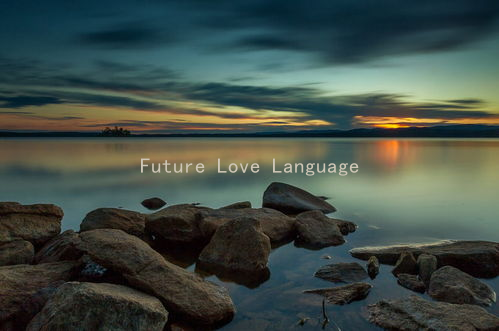Future Love Languages: Expressing Ethical Boundaries and Desires
In the landscape of modern relationships, the communication of needs, boundaries, and desires has never been more vital. As we continue to evolve in our understanding of personal relationships, a new set of love languages—rooted in ethical considerations—has begun to emerge. This article explores how we can express our ethical boundaries and desires in romantic relationships in a way that fosters trust, respect, and intimacy.
One of the essential aspects of a healthy relationship is the establishment of boundaries. These boundaries are not just about saying what we will not tolerate; they are also about articulating our needs and desires clearly. This linguistic shift towards expressing ethical boundaries can help both partners feel heard and valued. For instance, phrases such as I need some time to myself or I feel uncomfortable with that can set a precedent for healthy communication.
Understanding each other’s love languages is another critical factor in navigating the complex terrain of modern love. While traditional love languages—like acts of service, words of affirmation, or quality time—still hold significance, the linguistic tools we use to communicate our ethical boundaries and desires have become equally important. Engaging in conversations that elucidate not just what makes us feel loved, but also what makes us feel secure and respected, is crucial. For example, we can articulate our needs by saying, I appreciate it when you ask for my opinion before making decisions that affect us, which reinforces the importance of consent and collaboration in a relationship.
Transparency is also a vital component of expressing ethical desires. In the past, many relationships may have thrived on unspoken agreements or assumptions, but as we move forward, a more open dialogue is necessary. Being transparent about intentions and feelings can prevent misunderstandings and foster a deeper connection. A simple I want to be honest with you about how I feel can open up the floor for a meaningful discussion about both partners aspirations and boundaries.

Moreover, emotional intelligence plays a significant role in understanding and respecting each other’s boundaries. For instance, if one partner expresses that they are not comfortable with public displays of affection, acknowledging this feeling without judgment is essential. Instead of dismissing it, responding with empathy—such as saying, I understand that you feel this way, and that’s okay—reinforces a safe space for both partners to express their desires authentically.
In creating a relationship language that resonates with ethical considerations, it’s also important to encourage a dialogue about expectations. This might involve discussing future goals, personal values, or even societal standards that impact the relationship. Instead of assuming alignment, gently probing into each others perspectives can build a richer understanding. Asking questions like What does commitment look like for you? or How do you envision our future together? invites both partners to share their visions and work towards a common understanding.
In conclusion, the future of love languages is evolving, moving beyond traditional expressions of affection to include a more nuanced language that encompasses ethical boundaries and desires. By fostering open communication, transparency, and emotional intelligence, couples can cultivate a relationship that is not only loving but also respectful and ethical. As we embrace these new love languages, we pave the way for more fulfilling and harmonious connections, ensuring that both partners feel valued, understood, and empowered in their journey together.





